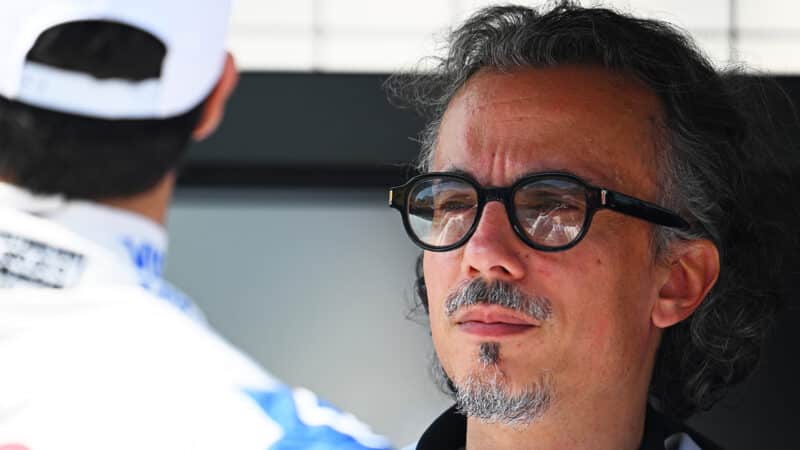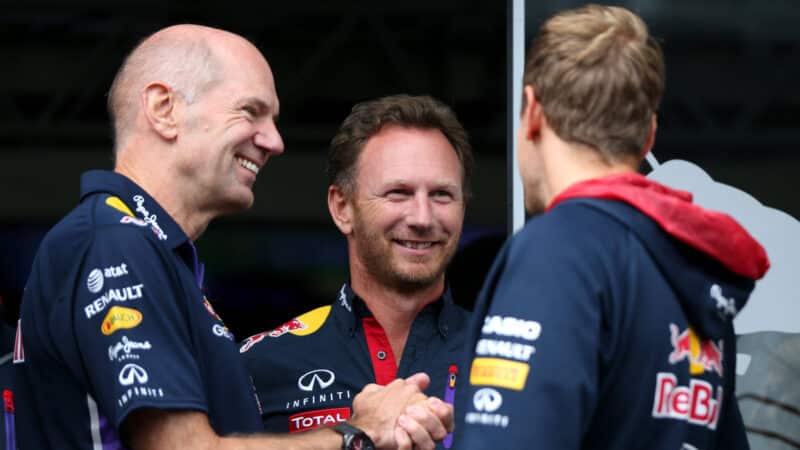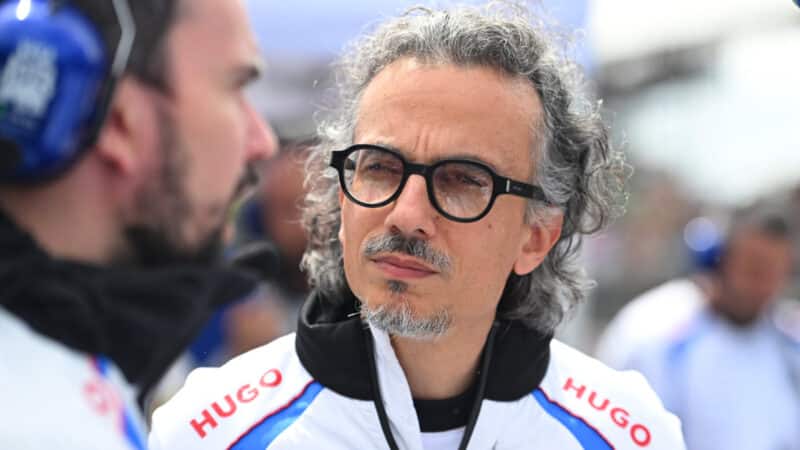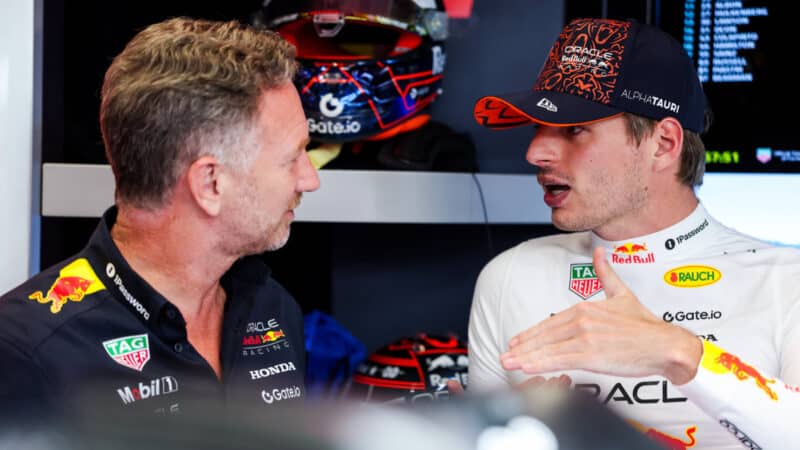What next for Red Bull after Christian Horner's exit?
With the sudden departure of Horner, Red Bull faces a pivotal crossroads as it navigates the future of its Formula 1 team and leadership

Laurent Mekies: the new face of Red Bull
Red Bull
Christian Horner‘s sacking as Red Bull Racing CEO marks a turning point in the Formula 1 team’s history.
For over two decades, since the team joined the grid in 2005, Horner was Red Bull.
The Briton was the architect of its success and the face of its ambition, having led the team during two of Formula 1’s most dominant spells, first with Sebastian Vettel and later with Max Verstappen.
Horner was in charge of the operation that was formed as an energy drinks marketing experiment that later became one of F1’s most dominant dynasties.
Now, in the middle of a disappointing 2025 season, Red Bull is suddenly facing the future without its long-time leader, and the questions about its future stretch far beyond who sits on the pitwall.
In trying to understand what Red Bull’s future looks like, it’s important to recognise how deeply Horner shaped what the team already is.
Horner wasn’t just a team principal, but also a political force, influencing FIA politics, and the man in charge of nurturing two of the championship’s greatest talents in Vettel and Verstappen. Both arrived at Red Bull at a very young age, and both went on to become two of the championship’s most successful drivers under Horner’s guardianship.
Horner’s role in Drive to Survive only amplified his reach, casting him as the sport’s calculating villain as he worked on elevating Red Bull’s brand beyond the race track.

Horner, Newey and Vettel enjoyed a dominant era
Red Bull
The first sign of cracks appeared in 2022, when Red Bull was found to be in breach of the cost cap regulations.
That led to a fine and a wind tunnel penalty, although Red Bull was so far ahead of its rivals that it didn’t appear to have a significant impact other than from a PR perspective. After all, Verstappen and the team broke all sorts of records in 2023.
But 2024 started with real problems, as a public scandal over inappropriate text messages emerged, increasing friction between Horner and the Austrian parent company, Red Bull GmbH
The eventual exit of key allies like Adrian Newey weakened Horner’s position and led to questions about his future.
The poor performance of the 2025 car appears to be the result of the issues that had been accumulating since 2024.
With results faltering and Verstappen sounding unsure of his future, the balance of power shifted, and Red Bull GmbH made its move and sacked Horner.
A different kind of leader
Horner will be replaced as Red Bull CEO by Laurent Mekies, previously Racing Bulls‘ team principal.

Mekies is very different from Horner
Red Bull
Mekies doesn’t arrive with Horner’s star power as he faces the huge challenge of leading the team into the new rules era, which Red Bull will not only face without Newey’s genius but also with the pressure of building its own engine.
But Mekies will bring other qualities, namely a more calm approach and higher technical intelligence, with a master’s in aeronautical and automotive engineering.
Mekies has made his name in F1 quietly through engineering roles at Toro Rosso and later four years at the FIA as safety director and then deputy F1 race director. He moved to Ferrari in 2018.
In 2024, he took the helm of Red Bull’s junior team, helping stabilise a rather chaotic structure and modernising its operations.
The result of his work over the past year has paid off, as Racing Bulls has become a more consistent midfield performer this season.
Now, Mekies will step into one of the most scrutinised roles in F1 with the goal of restoring focus, repairing relationships and, above all, convincing Verstappen that his future is better served by sticking around.
Mekies’ calm and subdued approach may be what Red Bull needs as it enters a key phase in its history.
Verstappen’s future
The 2025 season is not the first in which Verstappen hasn’t had a car to fight for victories on a regular basis, but it is the first since he took his first title and, perhaps more crucially, a sign that Red Bull’s declining form is now a trend.

Does Horner’s exit boost Verstappen’s chances of staying?
Red Bull
Verstappen has insisted he would like to finish his career at Red Bull, but even his loyalty has shown signs of strain.
The four-time world champion has always carefully worded his answers, but the ambiguity of them has also been evident in recent times.
How Verstappen’s camp will see Horner’s exit remains to seen, although some speculate that the team principal’s sacking will actually boost the chances that the world champion stays committed to Red Bull.
Mekies’ role in stabilising the dynamic with Verstappen and his team will be critical, even if results don’t come straight away.
Verstappen’s contract runs through 2028, but that will mean little if performance continues to dip. A stable and trustworthy leadership in which Verstappen believes might go a long way into convincing him to stay.
The engine question
Red Bull has faced several setbacks over the past year with the exit of Newey and Jonathan Wheatley.

Horner was key in convincing Ford to help with the engine
Red Bull
Whether this season’s dip is the result of those key exits, only the team will know for certain, but it’s undeniable that Red Bull’s image as F1’s technical leader is no longer there.
The RB21 is the car that marked the end of an era — not just for Red Bull’s dominance, but also for its technical leadership. Even Verstappen has struggled to extract performance from an unpredictable and unforgiving car.
All that adds up to make uncertainty grow ahead of an era that is likely to define the team’s future, with the creation of its own engine for the 2026 rules overhaul.
Red Bull Powertrains was one of Horner’s and Red Bull’s most ambitious projects. His sacking could lead to suggestions that things are not going as well as hoped, but that will only be confirmed when the cars hit the track next year.
Mekies will have to face many strategic decisions in his new role, and the future of the engine department will be one of them.
Naturally the result of Mekies’ work will not be noticed straight away, and he may need to solve problems he didn’t create, but so is the nature of the job.
The fact is the 2026 rules loom large on the horizon, and Red Bull can’t really afford to get them wrong, regardless of who is the man in charge.
